Women played an important role during Australia’s early years of radio broadcasting. We look at the pioneering contribution of Grace Gibson.
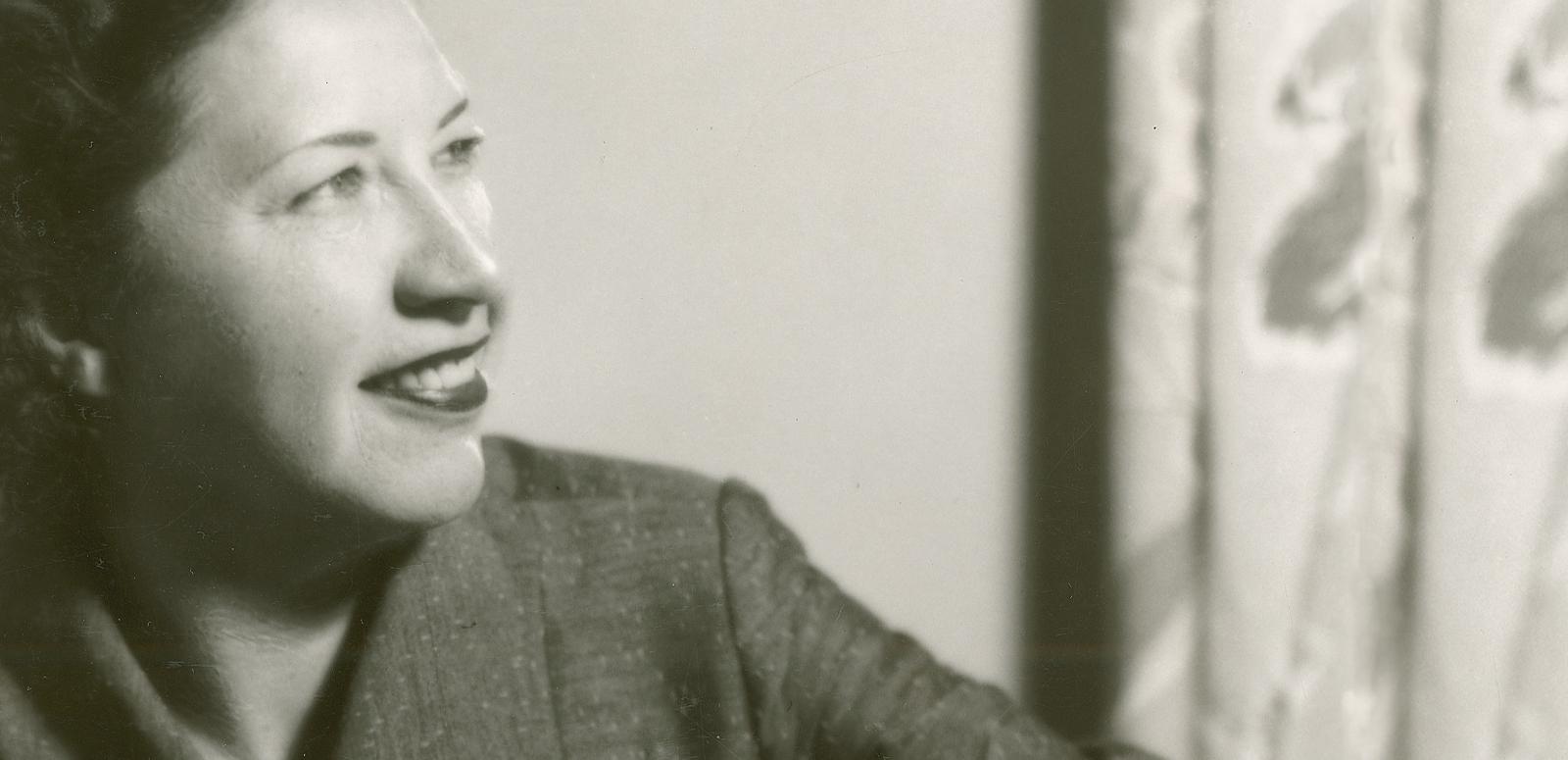
Women played an important role during Australia’s early years of radio broadcasting. We look at the pioneering contribution of Grace Gibson.
American-born Grace Gibson established one of the most successful radio production companies in the world. An astute businesswoman, Gibson brought the latest technology and business practices from Hollywood's radio industry to Australia.
Born in El Paso, Texas in 1905 Grace Gibson moved to California to finish her schooling. Her first job was for La Fiesta de Los Angeles, an event celebrating the 150th anniversary of the founding of Los Angeles in 1931. Though not necessarily seeking a career in radio, her next position was as office secretary for the Hollywood recording division of the Radio Transcription Company of America or TRANSCO. This company was one of the earliest producers of radio transcriptions, which were recordings of programs on discs that could be distributed to radio stations.
In late 1933 Gibson successfully sold several radio programs to a visiting Australian station executive AE Bennett, who was manager of the Sydney radio station 2GB. On his return to Australia, Bennett offered Gibson a six-month contract to take up the role of secretary for the new transcription department of radio station 2GB in Sydney, which aimed to sell American serials to stations all over Australia.
Gibson arrived in Sydney in May 1934 and together with Bennett established the American Radio Transcription Agency (later called ARTRANSA). Gibson introduced early American serials into Australia including: Pinto Pete and his Ranch Boys, Chandu the Magician and The Air Adventures of Jimmy Allen. In 1935, Gibson was likely the only woman in the world to be heading up a radio transcription company.
Though Gibson found Australia less welcoming to women in executive roles than in the United States, she decided to stay on. She did however return to Hollywood for a buying trip in late 1941, just before the bombing of Pearl Harbor, and was unable to return to Australia for several years. During her enforced stay in the US, Gibson became managing director of the Transcription Company of America and had great success in sales of radio programs.
Returning to Australia she formed Grace Gibson Radio Productions in 1944, one of the most successful radio production companies in the world. Though Gibson concentrated on the sales side of the business, she could recognise a good script and was noted for her skill at spotting talent. While considered careful about money, she was also generous to her staff and admired for her skill at sales and commitment to work.
Gibson’s company specialised in soap operas and serials, ranging from long-running family dramas Dr Paul and Portia Faces Life, to crime serials Night Beat and Dossier on Dumetrius.
An extract from episode 4 of the radio crime drama Nightbeat, by Grace Gibson Productions. The original typed script accompanies the audio.
Scripts were often imported from the United States and adapted for Australian audiences using local actors. From there they were syndicated to radio stations across Australia, New Zealand, South Africa, Hong Kong and the West Indies. Many shows were so popular that they were still produced for up to 14 years after the original American scripts ran out, employing local writers to take over.
An excerpt from a later episode (c1963) of the long-running Grace Gibson Productions radio serial Dr Paul, featuring Brigid Lenihan (Molly), Laurel Mather (Elizabeth) and Amber Mae Cecil (Leota). NFSA title: 202616
In 1952 Gibson made a serious attempt to expand her business into the new broadcasting medium by making a television pilot, aimed at the Australian and American markets. Due to the financial risks involved, Gibson chose not to proceed with any further television productions. However she provided assistance to Frank Packer in his successful application for a Sydney television license. Gibson continued to produce radio programs for some years following the introduction of television.
When Gibson sold the business in 1978, Grace Gibson Productions had produced and sold around 40,000 quarter-hour episodes. In recognition for her services to radio, Gibson was awarded the Order of Australia in 1987. She passed away in 1989.
The radio serials produced by Grace Gibson Radio Productions were added to the NFSA’s National Registry of Recorded Sound in 2012, in recognition of their cultural, historical and aesthetic significance and relevance.
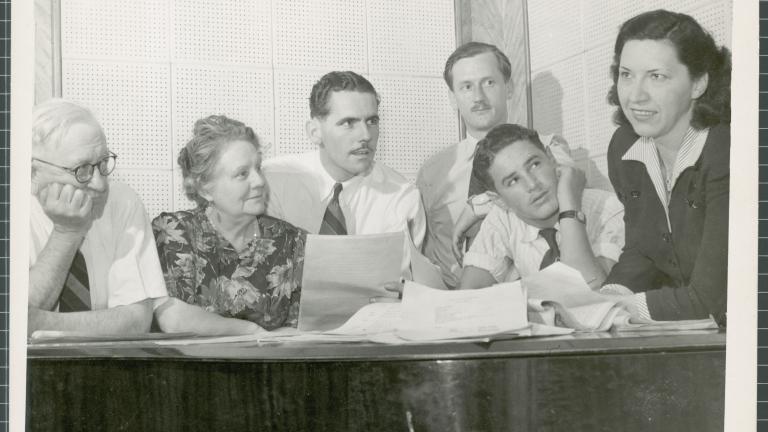
Grace Gibson with Marshall Crosby, Nellie Lamport, Howard Craven, Nigel Lovell and Warwick Ritchie, c1944. NFSA title: 359204
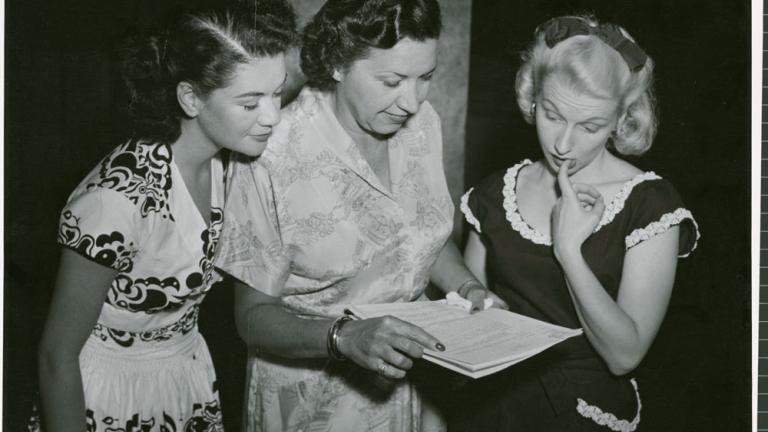
Grace Gibson with Betty McDowall and Madi Hedd. NFSA title: 716413
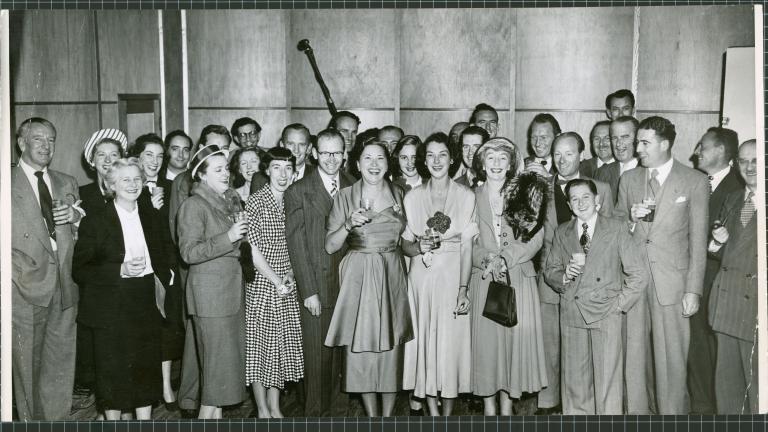
Grace Gibson with production staff and sponsors at the opening of BAP (British American Programmes) studios, 1952. NFSA title: 716426
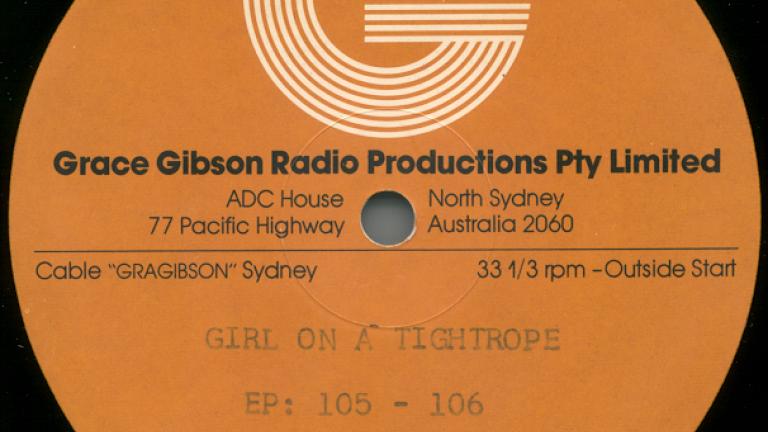
Grace Gibson Productions record label, c1975.
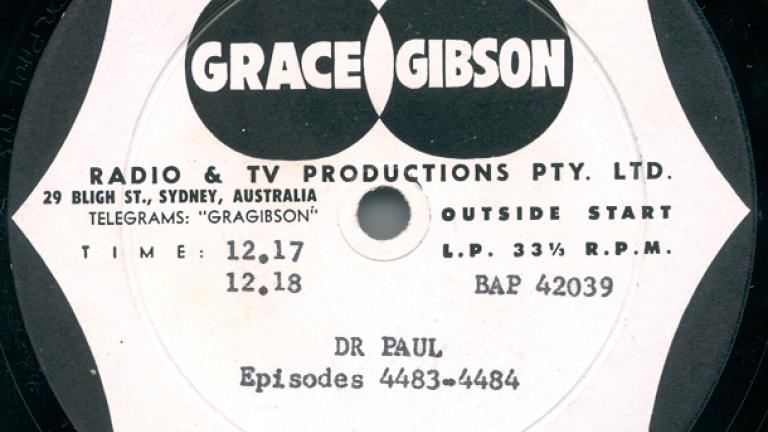
Grace Gibson Productions record label, c1960.
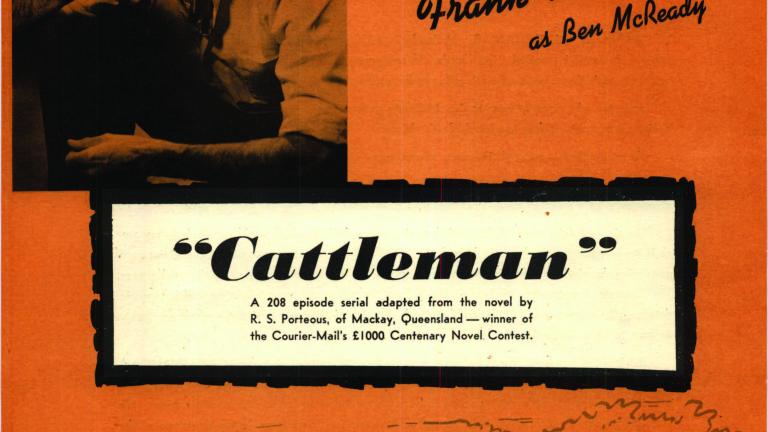
A publicity flyer for the 1960 Grace Gibson Productions serial Cattleman. NFSA title: 777904
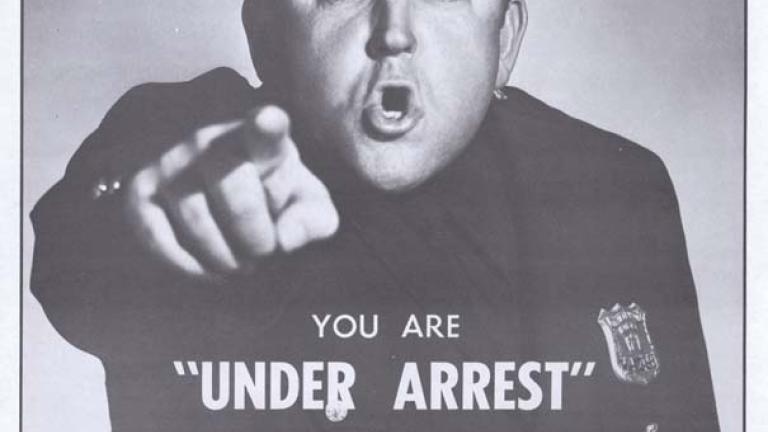
A publicity flyer for the Grace Gibson Productions drama Under Arrest, c1963. NFSA title: 597338
Books:
Lane, Richard and National Film and Sound Archive of Australia, 1994, The Golden Age of Australian Radio Drama 1923-1960: A History Through Biography, Melbourne University Press, Carlton South, Vic
Newspapers:
Broadcasting, 12 October 1953, p 22
‘AN AMERICAN GIRL Sells Sixty-Two RADIO SERIALS’, The Australian Women’s Weekly, 2 March 1935, p 25
‘Deadly Nightshade on 5AD’, The Advertiser, 3 July 1952, p 11
‘John Quinn’s RADIO ROUND UP’, The Mail, 5 July 1952, p 26
Oral histories:
Gibson, Grace interviewed by Jenny Anderson, NFSA title: 817755
James, Reg interviewed by Bruce Leonard, NFSA title: 260093
Vine, Valerie interviewed by Beverley Dunn, 1993, NFSA title: 268925
Vine, Valerie interviewed by Beverley Dunn, 1994, NFSA title: 272071
This article was first published in 2013. The text was updated in 2023.
Want to be the first to hear stories and news from the NFSA?
Subscribe to our newsletter and never miss out.
The National Film and Sound Archive of Australia acknowledges Australia’s Aboriginal and Torres Strait Islander peoples as the Traditional Custodians of the land on which we work and live and gives respect to their Elders both past and present.